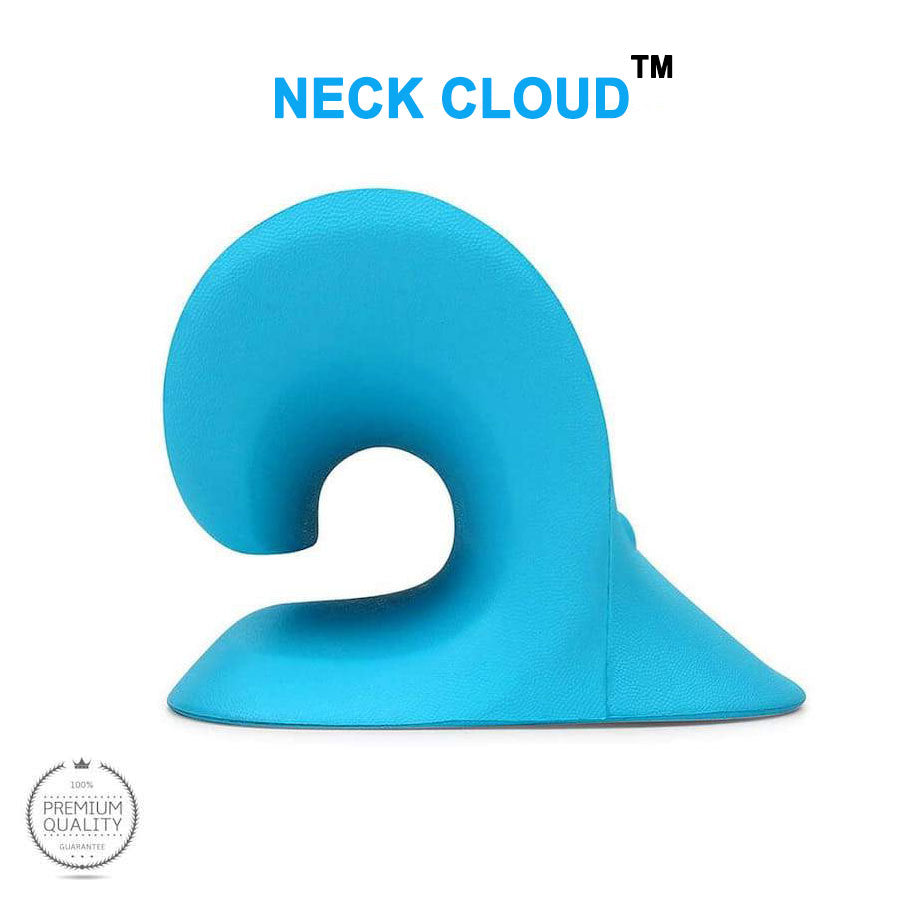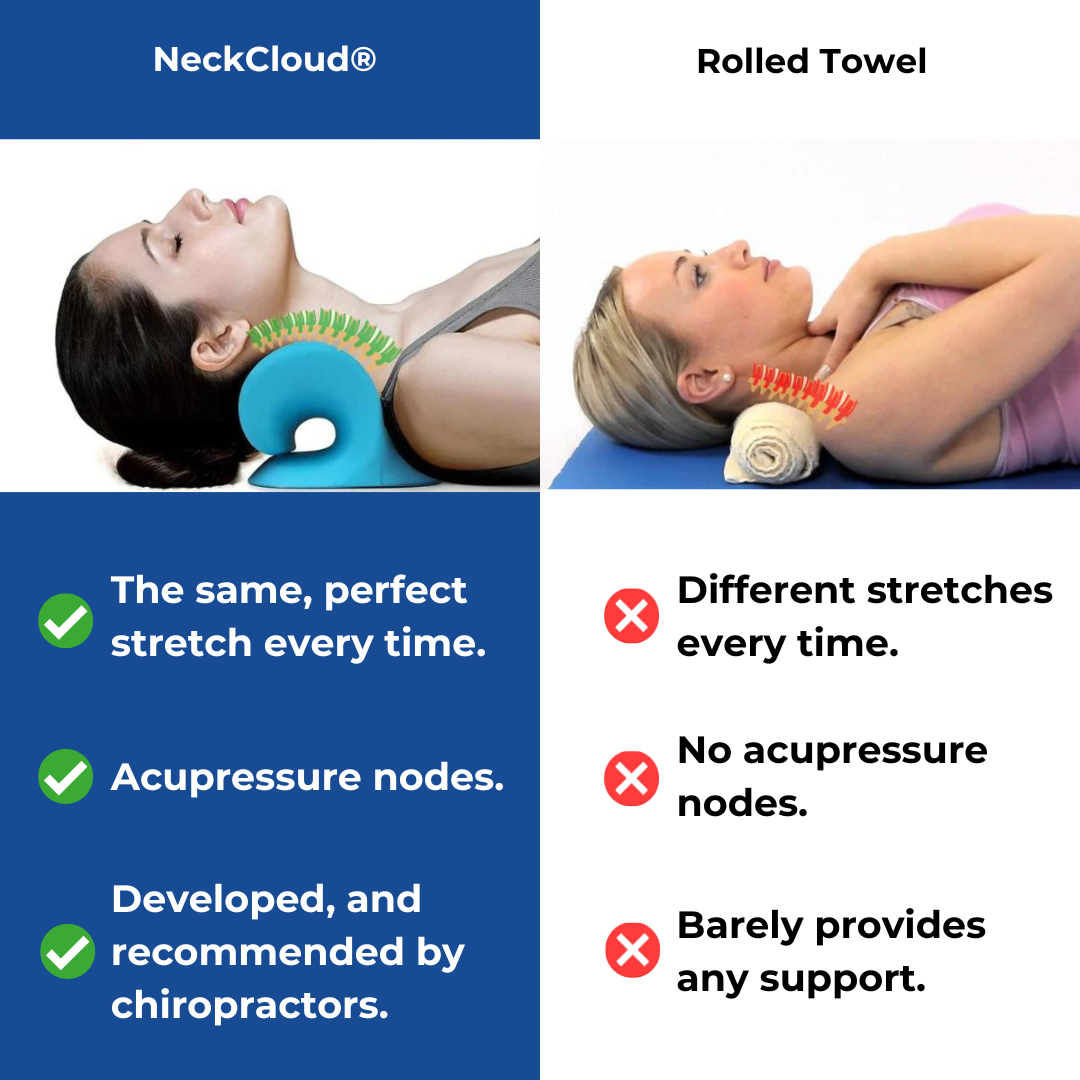Just How the Neck Cloud Can Aid With Persistent Neck Discomfort and Rigidity
Just How the Neck Cloud Can Aid With Persistent Neck Discomfort and Rigidity
Blog Article
The Effect of Stress on Neck Discomfort: Approaches for Reducing Tension and Pain
In today's busy globe, it's obvious that anxiety has ended up being a prevalent consider the start and worsening of neck discomfort. The detailed partnership between stress and anxiety and muscle mass stress typically leaves individuals seeking remedy for the discomfort that takes place. By discovering targeted methods focused on reducing tension and advertising leisure, one can begin to attend to the origin of neck discomfort and work in the direction of a more well balanced state of well-being. Join us on a trip to decipher the influence of stress on neck discomfort and find effective methods to reduce discomfort and improve overall lifestyle.
Understanding Stress-Related Neck Pain
Stress-related neck discomfort can materialize as tension, rigidity, or discomfort in the neck and shoulder area. The connection in between stress and neck pain lies in the body's physiological action to stress, which can result in muscle mass stress and rigidity in the neck muscular tissues.

Identifying Common Stress Areas
Regularly experienced by individuals under anxiety, stress areas in the body can offer useful understandings into the physical manifestations of mental pressure. One common tension location is the neck, where tension frequently shows up physically. Stress migraines, stiff neck muscular tissues, and restricted range of movement are common symptoms of stress-related neck stress. The shoulders are another usual area where tension builds up. Stress can create the muscle mass in the shoulders to tighten, resulting in pain and pain. Additionally, the top back is vulnerable to stress accumulation, especially in individuals who experience chronic anxiety. Poor pose and extended sitting can worsen tension around. The jaw is likewise a typical place for stress-related stress, as many individuals squeeze their jaw or grind their teeth when emphasized. Understanding these common tension areas can help individuals recognize the physical signs of tension and take steps to address them prior to they rise right into persistent discomfort or discomfort.
Carrying Out Relaxation Techniques
To effectively manage stress-related stress in the body, carrying out relaxation strategies is critical. Leisure methods are important tools for lowering neck discomfort triggered by stress. Deep breathing workouts can assist calm the mind and loosen up strained muscles in the neck and shoulders (neck cloud). Exercising mindfulness meditation can additionally be beneficial in relieving anxiety and promoting leisure. Modern muscle leisure, where you systematically stressful and then relax various muscle teams, can release built-up stress in the neck area. Additionally, tasks like yoga exercise and tai chi integrate both physical movement and relaxation, making them reliable techniques for minimizing go to my site tension and neck pain. Taking normal breaks throughout the day to stretch and take a break can stop muscle stiffness and stress from accumulating. By including these leisure methods right into your everyday routine, you can assist handle stress degrees, minimize tension in the neck, and alleviate pain related to stress-induced neck discomfort.
Including Self-Care Practices
Integrating self-care practices is crucial for keeping general health and handling stress-related neck pain efficiently. Participating in routine physical activity, such as mild stretching exercises or yoga exercise, can aid reduce tension in the neck and shoulders. Practicing excellent stance throughout the day and taking constant breaks from long term resting or display time can likewise stop stress on the neck muscle mass.
Additionally, prioritizing adequate sleep and establishing a consistent sleep regimen can add substantially to minimizing tension levels and advertising leisure. Producing a soothing bedtime regimen, such as checking out a book or taking a cozy bathroom, can assist prepare the body and mind for restful rest. Furthermore, preserving a balanced diet regimen abundant in nutrients and staying hydrated can sustain general health and lower swelling that may exacerbate neck discomfort.
Integrating mindfulness practices, such as deep breathing workouts or learn this here now reflection, can help take care of anxiety and promote relaxation. Taking time for oneself, taking part in pastimes, and establishing limits to safeguard personal time are additionally crucial elements of self-care that can add to reducing anxiety and easing neck pain.
Looking For Professional Aid
How can people effectively resolve consistent neck discomfort that is impacting their every day life and well-being? Looking for professional assistance can be an essential action in managing and easing neck pain. Consulting with health care specialists such as chiropractic practitioners, physiotherapists, or orthopedic experts can give important understandings and tailored treatment strategies. These professionals can carry out thorough analyses to diagnose the underlying reasons for neck pain and suggest ideal interventions.
Chiropractic practitioners specialize in spinal adjustment methods to boost placement and minimize stress in the neck location. Physiotherapists use targeted exercises and stretches to reinforce muscles, boost adaptability, and enhance general neck function. Orthopedic professionals can offer advanced clinical interventions such as injections or medical alternatives for severe situations Read More Here of neck discomfort.
Final Thought

Stress-related neck discomfort can show up as stress, rigidity, or pain in the neck and shoulder area. The connection between anxiety and neck discomfort exists in the body's physiological feedback to stress, which can result in muscular tissue stress and rigidity in the neck muscle mass. Stress headaches, stiff neck muscular tissues, and limited array of movement are typical signs of stress-related neck tension. By incorporating these leisure strategies right into your everyday routine, you can help take care of stress and anxiety degrees, minimize tension in the neck, and minimize discomfort linked with stress-induced neck discomfort.

Report this page